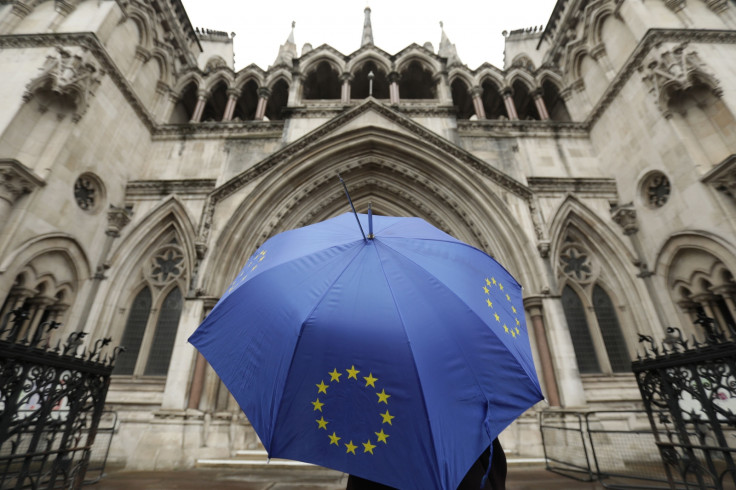Brits are well-travelled, open-minded global citizens – damn the Brexiteers who want to change us
The rhetoric of Theresa May and others does not reflect Britain's proud history of internationalism.

In post-Brexit Britain those who voted remain are now being cast as metropolitan elites and disparaged as citizens of the world. Theresa May has recently said, "those who still believe Britain has made a mistake in leaving the EU are just patronising members of a liberal metropolitan elite." These comments are patronising, and let's not forget that 48% of the public voted for remain.
In May's view, those who voted for remain are now just a minority. Her comments about a tiny elite are also inaccurate; 16 million people voted remain. Nonetheless, the Sun welcomed her "war on the metropolitan elite," a war, which the newspaper said, was necessary for Britain to fight. Now anyone who does not share the zeal of the pro-Brexit camp is seen as part of an elite.
May went further by saying, "If you are a citizen of the world, you are a citizen of nowhere." She was in short disparaging the idea of global citizenship as she criticised 'elites' for feeling more connected to people outside of Britain, than for the people who live in this country.
But the notion that global citizenship is somehow about an exclusive, elite minority is just not the case. May's attack on global citizenship is not about some exclusive global jet-set but rather ordinary Brits – like me – who consider themselves both citizens of Britain and the world. Nor does identifying as a global citizen negate being a citizen of Britain. According to an 18-nation survey conducted in December 2015 by GlobeScan and BBC World Service, 47 percent of Britons consider themselves more as global citizens than citizens of the UK.
Brexit has unleashed an opportunity for May's Conservative Party to scapegoat ordinary British citizens by falsely accusing them of being members of an elite
Though May's criticism of global citizenship is unfounded, the issue she raises about the distance between elites and the rest is important. In recent years there has been the emergence of a two-speed Britain, one in which there is a divide between those who are at ease with a diverse Britain and those who are not – the ones who feel marginalised and left-behind. But, while we may criticise this trend and even seek to reverse it, this issue should not be used as a cloak to label half the population, who voted remain, as 'metropolitan elite' or disparage them as 'citizens of the world'.
This is not about a tiny metropolitan liberal elite. These global citizens are ordinary people – they trade, they move and they marry across borders. Brits are some of the most travelled people in the world. Not only are there were 1.2 million UK nationals living in the EU, but this number is far dwarfed by the estimated 5 million Brits who live in the rest of the world.
For many of us, our identities transcend borders, we value that we are part of a global community. Indeed, identity has always been more than just a passport. This is what is galling about Brexit; in our decision to leave the European Union, we are turning back on our proud history of internationalism. Britain was at the centre of a global empire and, after 1945, Britain helped create the international order.
May gets applause for her attacks on the 'global citizen' – which has become a euphemism for the do-gooders, the human rights lawyers, and the leftist pro-refugee types. Conservatives may sneer at notions of 'the global citizen', but her views shows that she misunderstands what citizenship means, and in a sense she's turning her back on Enlightenment values championed by Britain for centuries. And May's recent rhetoric about citizenship is sowing more division between ordinary citizens by invoking fear of an imagined elite.
Though May has criticised what she terms 'divisive nationalism,' her interventions are unleashing a rise of true divisionism. Those who want to ask questions about how Brexit negotiations will work are now been labelled as 'unpatriotic.' This week Christian Holliday a Conservative councillor in Surrey was suspended after launching a petition calling for support of UK membership of the European Union to be declared treason.
May's recent interventions are not about unity. It's about feeding the very divisive nationalism that she has claimed to speak against in the past few weeks. We have seen the rise in incidents of hate crime since the Brexit vote. Brexit has unleashed an opportunity for May's Conservative Party to scapegoat ordinary British citizens by falsely accusing them of being members of an elite, and with a distracted Labour Party, there is no counterbalance to their agenda.
Ismail Einashe is a journalist, researcher and an associate editor at Warscapes, a foreign affairs magazine. He tweets at @IsmailEinashe
© Copyright IBTimes 2025. All rights reserved.






















